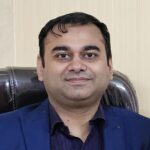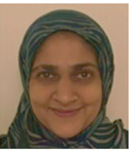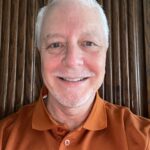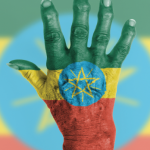 Rheumatology workforce challenges are a global concern. Many challenges, especially the lack of trained rheumatology clinicians, are similar among countries and regions of the world, while others differ. The 2024 ACR Global Summit session on workforce featured a discussion by representatives of regional rheumatology organizations and the ACR addressing issues central to developing and retaining workforce in our field.
Rheumatology workforce challenges are a global concern. Many challenges, especially the lack of trained rheumatology clinicians, are similar among countries and regions of the world, while others differ. The 2024 ACR Global Summit session on workforce featured a discussion by representatives of regional rheumatology organizations and the ACR addressing issues central to developing and retaining workforce in our field.
Panelists for the summit included Sakir Ahmed, MD, DM, Kalinga Institute of Medical Sciences, India (APLAR); Anja Strangfeld, MD, German Rheumatology Research Center and Charité University Medicine Berlin (EULAR); Farhanah Paruk, MBChB, PhD, University of KwaZulu-Natal, South Africa (AFLAR); Daniel Battafarano, DO, University of Texas Health-San Antonio, and Uniformed Services University (ACR); and Ana Maria Arredondo Gonzalez, MD, Hospital de San José Centro, Bogota, Colombia (PANLAR). Some of the key topics addressed by the panelists included workforce training, reimbursement, availability of affordable medications, salaries, national and international healthcare priorities that disadvantage rheumatology services, and use of technologies and artificial intelligence tools to improve patient and provider education and disease management.
Focus on Asia
In India, there are fewer than one rheumatologist for every 1 million people, according to Dr. Ahmed. This severe shortage of rheumatologists poses major challenges especially for reaching underserved populations. Most of rheumatologists are geographically clustered in major metropolises.
“This is not just about India,” said Dr. Ahmed. “There are lots of diversities, cultural, socioeconomics across the APLAR region. Each country has its own unique challenges and advantages.”
Using technology, including artificial intelligence approaches, has great potential to help address these problems. Dr. Ahmed also commented that, as a comparatively newer discipline, rheumatology has not been well integrated into the undergraduate syllabus, affecting training but also awareness of the discipline as a career choice. As in many countries, reimbursement for non-proceduralist practices in which physicians spend time with patients is poor, and the patient workloads are high. Consequently, practitioners who go into rheumatology often do not have the ability to participate in teaching the next generation of rheumatologists.
Focus on Europe
The need for better data collection regarding rheumatology needs and workforce was emphasized by Dr. Strangfeld, who chairs the EULAR Subcommittee on Epidemiology and Public Health of the EULAR Research Committee. This group is collecting data across Europe to provide the key facts and figures to policymakers for workforce planning, finding a large difference among European universities in rheumatology education.





